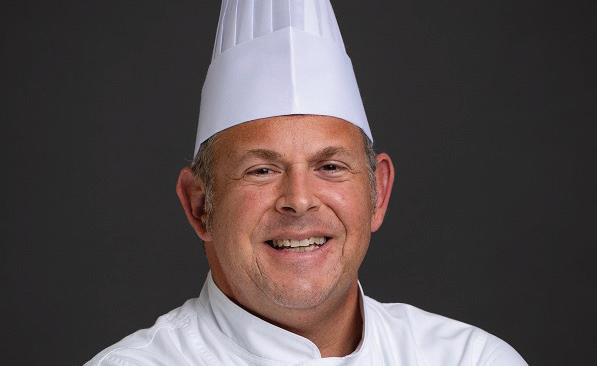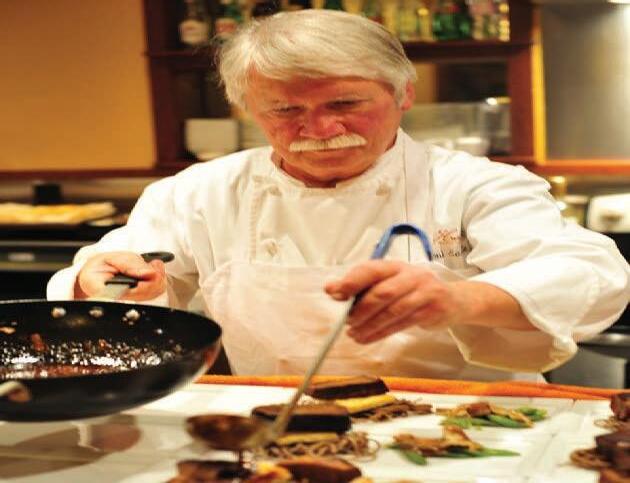
6 minute read
STATE of the INDUSTRY
from National Culinary Review (January/February 2025)
by National Culinary Review (an American Culinary Federation publication)
STATE of the INDUSTRY
Industry experts weigh in on the key issues & challenges shaping the future of foodservice
By Patricia L. Fitzgerald
Industry forecasts can be as unpredictable as weather predictions. Evaluating our current position is crucial for planning future steps, as relying on the status quo often leads to stagnation. For culinary professionals, a thorough state of the industry report would typically require a year or more to compile. However, this abbreviated analysis focuses on four key segments: research, restaurants, healthcare, and culinary education.
AI Meets Innovation
One could say that anticipating—and shaping—the future is part of the raison d’être of the Research Chefs Association (RCA), which integrates food science and culinary arts expertise to elevate product development. ACF Chef Charles Hayes serves as RCA President and Vice President of Culinary Innovation at Deli Star Corporation and affirms that artificial intelligence (AI) is buzzing in the industry. Still, he cautions that the noise may offset practicality.
“There is a lot of interest in AI as a likely tool in new product development,” he says. “AI can create baseline formulas, but I have yet to see a system that can actually develop product without the human element.”
Previous “it” trends, like the obsession with plantbased food products, have cooled down, but Chef Hayes reports that those trends are not going away. “There is proven market demand, and new ingredients continue to evolve. Don't be surprised to see seaweed, kelp, and other aquaculture products used in plant-based foods. They are here to stay.”
Previous “it” trends, like the obsession with plantbased food products, have cooled down, but Chef Hayes reports that those trends are not going away. “There is proven market demand, and new ingredients continue to evolve. Don't be surprised to see seaweed, kelp, and other aquaculture products used in plant-based foods. They are here to stay.”
Ongoing skilled labor shortages remain an influential challenge. “Ease of preparation with limited labor is pressuring the marketplace,” observes Chef Hayes. Hayes

predicts high demand for sous vide, pre-portioned, raw, seasoned, ready-to-cook proteins. Meanwhile, financial constraints make investing in innovation even more difficult for larger manufacturing companies. “Margins are tight, while costs—labor, overhead, utilities, freight—continue to increase. We’re seeing more focus on core competencies rather than innovation.” However, Chef Hayes is more optimistic about opportunities for smaller, more nimble companies to thrive in this environment.
Restaurants Under Pressure
Longtime restaurant industry expert and former Technomic exec Darren Tristano, founder and CEO of Foodservice Results, expects that “2025 will continue to be the survival of the fittest for many restaurants.” Economic uncertainty will force the closures of weaker chains and independents. “Ultimately, there are too many restaurants open and too many new openings,” he assesses. “I expect a reckoning as early as January, with many restaurants struggling just to make it through the holidays.”
Tristano’s sobering outlook extends to on-premise traffic. “Consumers are struggling with higher prices and will continue to eat at home more often to compensate,” he says. Despite a more acceptable inflation rate, food prices are unlikely to drop, putting greater pressure on operator margins. Look for buffets to disappear and portion sizes to diminish as a result.
He’s optimistic about operations catering to healthconscious diners, expecting growth in plant-based foods and gut health options. Trends also include more use of predictive analytics, personalized marketing, automated delivery, cloud kitchens designed for delivery/takeout, digital ordering via QR codes, kiosks, and apps, and pickuponly drive-thru mode.
Healthcare’s Bright Future
ACF Chef Jeffrey Quasha, CEC, CCA, AAC , senior director of culinary innovation at Morrison Healthcare, is notably optimistic about the future of food service. He’s particularly positive about labor in the healthcare segment, stating, “We’ve shifted and adapted our labor needs. We’re in a new normal,” he says. “We’re going back to actually cooking, and that’s going to attract great cooks and chefs.” With growth in acute care, long-term care, and senior living, he adds that this segment is expanding and offers a strong quality-of-life balance.

Chef Quasha is also excited to turn challenges into opportunities. “As a profession, chefs have been late to the game regarding local sourcing and sustainability. We’re starting to buy into ideas like regenerative agriculture and committing to local growers and producers,” he says. Global menu trends are here to stay as well. “There are so many ethnic pockets within every community, and we have to be more cognitive of these,” Chef Quasha notes. “Hospitals are often the center of town, and you see every generation and ethnicity represented in patients, families, and staff.” Chef Quasha acknowledges that continued fears of inflation and impacts on pricing will require ever greater intention when writing menus. “We don't buy a
new product unless it has at least five menu options across different dayparts," he explains.
This thoughtful approach ensures sustainability while keeping offerings innovative and cost-effective in an everchanging market.

Rethinking Culinary Education
ACF Chef Paul Sorgule, MS, AAC , founder of Harvest America Ventures, has been working in, writing about and consulting for the culinary education sector for decades. “We must stop thinking that degrees are the only way to move forward,” says Chef Sorgule. “Degrees are expensive for both the provider and the student, and they take time to deliver. But we live in a world where patience is in short supply and a need to return on investment rules the day. Employers want graduates who can hit the ground running with very strong foundational skills, knowledge of the kitchen environment, the ability to multitask and to be conscious of speed without sacrificing quality.”
While it’s imperative to teach and train to competence, leading to confidence, Chef Sorgule recognizes the rapidfire pace of change today. “The skills a graduate has today may be obsolete in a few months, creating a significant need for ongoing education,” he says, expecting greater use of videos, webinars, workshops, and certificates. “Schools must be flexible and aggressive when it comes to innovation. Programming must be current, appropriate, cost-effective, convenient, and cognizant of a student’s time.”


